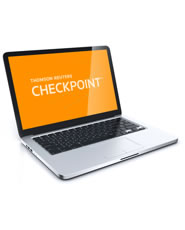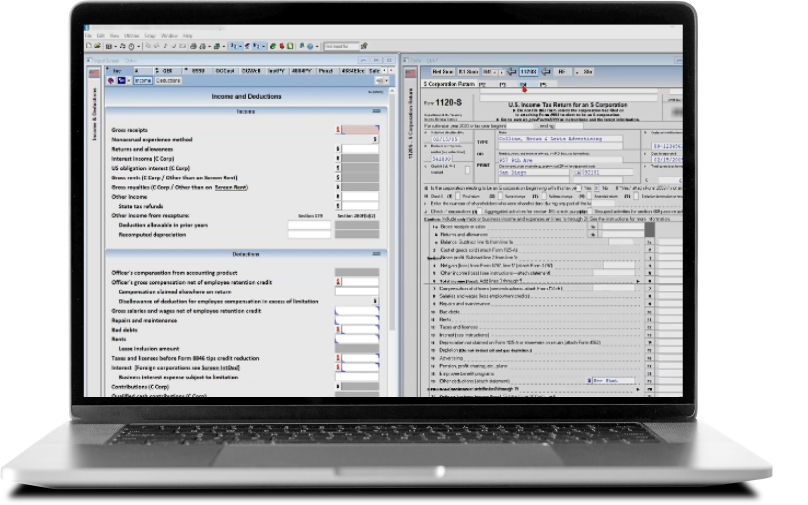Jump to:
| Do U.S. expats pay taxes? |
| Paying taxes on money earned abroad |
| Avoiding double taxation |
| Helping clients who live abroad with their taxes |
U.S. citizens living abroad, often referred to as expatriates or expats, are generally required to file U.S. income tax returns, just like individuals living in the United States. However, the tax obligations for expats can be different and more complex due to their international status.
For accountants, providing comprehensive and personalized tax advice to U.S. expatriates requires a deep understanding of international tax laws, relevant tax forms, and potential tax benefits.
Here is your guide to understanding the tax implications for U.S. expats, ensuring compliance with tax regulations, and maximizing tax savings for your clients.
Do U.S. expats pay taxes?
If you are a U.S. citizen or resident living or traveling outside the United States, you are generally required to file an income tax return using Form 1040 in the same way as individuals residing in the United States.
Your income, filing status, and age generally determine whether you must file a return. Typically, you must file a return if your gross income from worldwide sources is at least the amount shown for your filing status in the Filing Requirements table in Chapter 1 of Publication 54, Tax Guide for U.S. Citizens and Resident Aliens Abroad.
What is the tax exemption for U.S. citizens living abroad?
U.S. citizens living abroad may be eligible for the Foreign Earned Income Exclusion (FEIE) or the Foreign Tax Credit (FTC).
The FEIE allows you to exclude a certain amount of your foreign-earned income from U.S. taxation. The FTC, on the other hand, provides a credit for taxes paid to a foreign country, which can offset your U.S. tax liability.
What tax form does a U.S. citizen living abroad file?
U.S. citizens living abroad typically use Form 1040, the same form used by taxpayers in the United States. However, there are additional forms and schedules that may apply, such as Form 2555 (for claiming the Foreign Earned Income Exclusion) and Form 1116 (for claiming the Foreign Tax Credit).
The specific forms you need to file depend on your financial situation and the tax benefits you’re eligible for.
Paying taxes on money earned abroad
Living abroad doesn’t exempt U.S. citizens from their tax obligations to the U.S. government.
Here’s what you need to know about handling income earned abroad.
- File using Form 1040. U.S. citizens living aboard must report all worldwide income, including income earned abroad. This includes income from employment, self-employment, investments, rental properties, and any other sources of income.
- Claim exclusions and credits. If you are eligible, you can use various provisions to reduce or eliminate U.S. taxes on your foreign-earned income. The most common is the Foreign Earned Income Exclusion (FEIE), which allows you to exclude a certain amount of your foreign income from U.S. taxation. You can also claim the Foreign Tax Credit (FTC) if you paid taxes to a foreign government on the same income.
- Report foreign financial accounts. If you have foreign bank accounts or other financial assets that exceed certain thresholds, you may be required to file FinCEN Form 114 (also known as Foreign Bank Account Reporting or FBAR) and possibly IRS Form 8938 to report these assets.
- File state income taxes as needed. Depending on your U.S. state of residence and your state’s tax laws, you may also need to file state income tax returns on your foreign-earned income. State tax laws vary, so it’s essential to check the rules in your specific state.
How to declare income from abroad
To declare income earned abroad, you must report it on your U.S. tax return. This includes income from employment, self-employment, investments, rental properties, and any other sources. You’ll need to provide detailed information about your foreign income, including the source, amount, and currency.
Can the IRS track foreign income?
Yes, the IRS has mechanisms to track foreign income and financial accounts.
Foreign banks and financial institutions are required to report accounts held by U.S. citizens to the IRS under the Foreign Account Tax Compliance Act (FATCA). Additionally, tax treaties and international agreements allow the IRS to exchange information with tax authorities in other countries.
|
|
BookThe trusted guide to complex international tax questions from Thomson Reuters® Checkpoint. |
Avoiding double taxation
One of the primary concerns for expats is the potential for double taxation—being taxed by both the U.S. and the foreign country where they reside or earn income. Double taxation can be a complex issue, and the strategies to avoid it will depend on your individual circumstances, the tax laws of your country of residence, and any applicable tax treaties.
To avoid or mitigate double taxation, accountants should develop strategies that optimize the use of tax credits and exclusions, including the FEIE and FTC, for their clients.
It is also important to note that the United States has tax treaties with many countries that are designed to prevent double taxation. These treaties often contain provisions for reducing or eliminating taxes on specific types of income. It’s essential to review the tax treaty between the U.S. and the country of residence to understand how it affects tax liability for your clients.
Helping clients who live abroad with their taxes
If you’re a tax professional assisting U.S. citizens living abroad, here are three tips to best support your clients:
- Stay up to date with international tax laws, U.S. tax regulations, and tax treaties between the U.S. and the client’s country of residence.
- Advise clients on available tax credits and deductions, such as the FEIE and FTC, and assist them in properly filing the required forms and schedules.
- Navigate complex issues like Foreign Bank Account Reporting (FBAR) and FATCA on behalf of your clients.
By providing knowledgeable and professional assistance, you can help U.S. citizens living abroad meet their tax obligations, minimize tax liabilities, and ensure compliance with both U.S. and foreign tax laws.
Tax software for US citizens living abroad
Tax software is a valuable tool for accountants serving U.S. expatriates. It simplifies the often complex process of reporting foreign income, reduces the risk of errors, and ensures compliance with tax laws.
Many tax software packages offer form-specific guidance, including instructions on which IRS forms to use when reporting foreign income. This helps accountants and clients ensure they are using the correct forms and filling them out accurately.
Tax software can calculate foreign tax credits, which can offset the U.S. tax liability on foreign income. This feature helps accountants ensure that clients maximize their available tax credits, reducing the risk of double taxation. In addition, tax software allows accountants to input financial data from various sources, including foreign income, in a streamlined manner.
Perhaps most importantly, tax software often receives real-time updates and alerts regarding changes in tax laws and regulations, including those related to foreign income reporting. This ensures that accountants and U.S. expats are aware of any changes that impact their tax obligations.
If you’re an accountant who serves U.S. citizens living abroad, SurePrep software can integrate with UltraTax CS, GoSystem Tax RS, CCH Axcess Tax, and Lacerte and can help you reduce manual data entry, ensure compliance, and minimize tax liability.
The AI-powered combination of 1040SCAN, SPbinder, and TaxCaddy integrate with your existing tax software to automate each phase of the tax prep process for US. expatriates. Together with Checkpoint Edge, you can be sure you are properly interpreting IRS tax legislation in an ever-changing landscape.
To learn how you can cut your tax workflow time with easy tax return calculations for U.S. expatriates, visit https://tax.thomsonreuters.com/en/products/ultratax-cs.
DemoWatch a free demonstration of UltraTax CS professional tax preparation software, or request a live demo tailored to your needs. |
|
|
|
BlogTake a look at what defines U.S. nonresident aliens and their tax status. |










